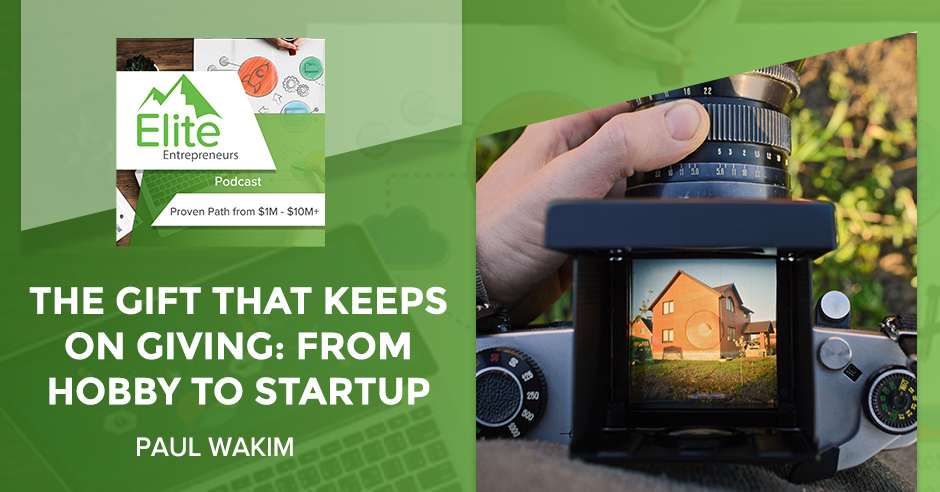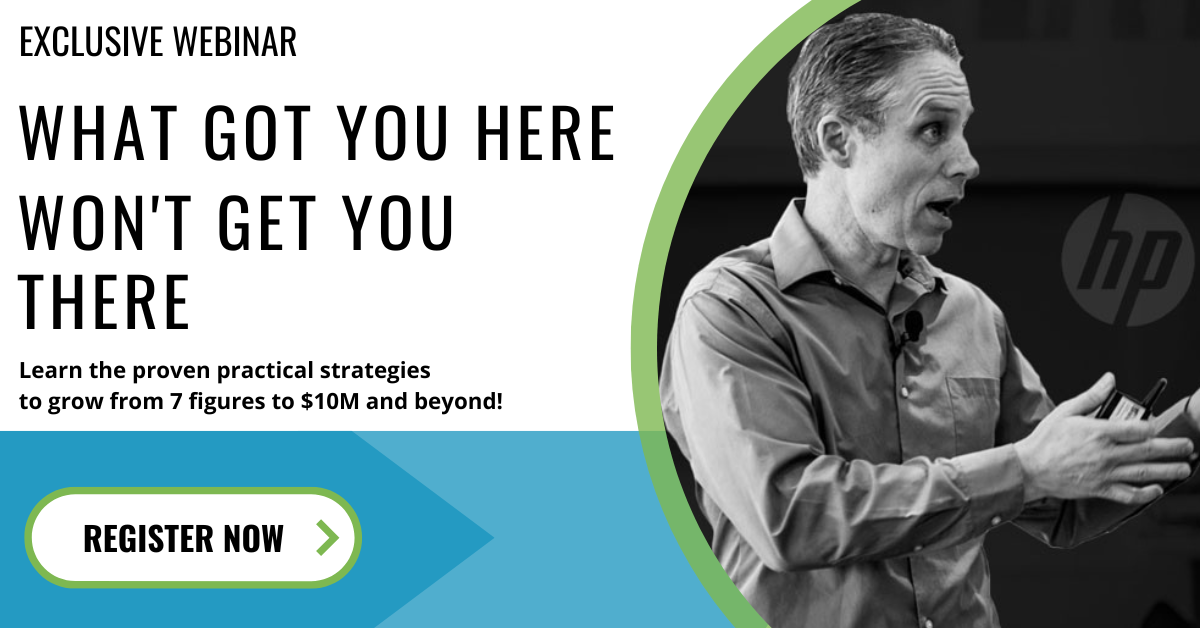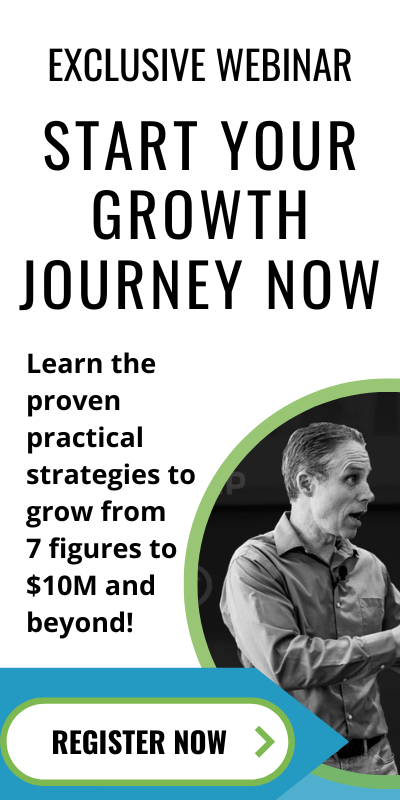Episode 130: The Gift That Keeps On Giving: From Hobby To Startup With Paul Wakim
Watch the episode here
Listen to the podcast here
Transitioning from hobby to startup may be fun, but it’s not always as breezy as it sounds. At the end of the day, you still have to build and run a business, and that comes with the usual side of obstacles and challenges. Paul Wakim has had his share of challenges as the co-founder of TwnSqr, a real estate software company. Before TwnSqr, Paul was exposed to the real estate world through real estate photography. His talent at photographing properties turned into a full-scale business that launched him to full-time entrepreneurship. In this episode, he shares some of the most important lessons he learned over the years as an entrepreneur. He shares how compartmentalization is important, especially when it comes to balancing equally important executive tasks like fundraising and managing business operations. He also explains how he learned the importance of relinquishing control and empowering people to run the business so he can step out as the CEO. All these and more in this short but packed episode. Tune in!
—
I’m excited to have a new guest that we have not had on the show yet, another great founder who has some great business scaling, experiences and lessons to share with us. His name is Paul Wakim. He is the Cofounder of a very innovative company in the real estate space called TwnSqr. Paul, I want to welcome you to the show. Thank you for being here with us.
Thanks much for having me, Brett. It’s an honor to be here. I’m looking forward to telling you about my business experience and seeing how we can relate to things and maybe work together.
Tell them how they can find your website so that they can get to know you a little bit that way.
It’s a running joke at our company that the city of Nantucket, please sell us the domain Town Square spelled properly. You can find my company and me at TwnSqr.com. As all innovative tech companies do, we pulled all the vowels out because we didn’t want to pay for the expensive domain.
That speaks to the bootstrapping gritty start startup scene that we all start with. Why don’t we start there? Why don’t you tell us about TwnSqr and your growth journey and then we’ll jump to some of the lessons.
I’m originally from Pittsburgh, Pennsylvania. I graduated from the University of Pittsburg. I have a degree in Economics. As soon as I graduated, my girlfriend at the time, now my wife, bought me a drone for my graduation present. We thought it was going to be a fun hobby. It turned into what has become one of the largest real estate photography businesses on the East Coast.
As the primary photographer, bootstrapping that business, I got a lot of experience with high-level real estate investors and agents that dealt with high-level real estate investors. It was my first exposure to the world of real estate investing. Fast forward to 2019, I met my Cofounder Mitch. He quit his job. We decided to create an algorithm to predict who was going to sell their house next in the Pittsburgh, Pennsylvania real estate market.
Right before COVID hit, I’ll never forget, Mitch gave me a call as I was finishing up one of my last photography appointments ever. He said, “We got 95% accuracy with our prediction algorithm in Allegheny County.” We were psyched but then a couple of weeks later, COVID hit the entire country and the entire state of Pennsylvania and shut down the real estate for four months. All of that data was no longer useful, to say the least.
Since 2019 or 2020, we’ve iterated through different versions of TwnSqr to arrive at where we are. TwnSqr is a marketplace for real estate investors, wholesalers and anybody who touches off-market real estate to post their properties with specific tools that we’ve built on top of that marketplace to help those real estate professionals with the sale of their properties. We can get into what all of that is but that’s me in a nutshell. That’s my background.

From Hobby To Startup: When raising money, remember that you still have to run your business. Try to compartmentalize that and do one or the other as best you can, because investors definitely take a lot of energy to keep happy.
Gift/hobby turned into a real estate photography business and then you started to connect with the real estate industry, the market and players and understand some of their needs then you found an interesting thing to create software. That’s what TwnSqr is. That’s a cool journey. Get started, still going and doing the thing. We all expect to hear and see TwnSqr in all the great entrepreneurial publications.
Let’s talk about some of your personal growth journey as a leader. You’re a Cofounder. Mitch isn’t here to defend himself. Here are some of his ideas but we’ll focus on the things you’re learning as a leader or as a cofounder in a growing business. You had some good foundational experience with the real estate photography business. You start up this software company with your cofounder. Aside from product-market fit kinds of things, every business has to figure that piece out. As you gained some traction and looked to organize this business, what are some of the things you ran across that you could put in this bucket of lessons I’m learning as a growing business owner?
One of the things that Mitch and I have both learned is that from the beginning, we were working and we still are, 14 or 16 hours a day, 6 or 7 days a week, trying to do everything. Whenever we had that algorithm, I taught myself how to code very poorly. The most basic lesson that we learned is we were not going to have a successful business if we try to do everything.
We’re not going to have a successful business if we try to do everything. Click To TweetOne of our very first hires, after we raised our first round of money for TwnSqr in early 2021, was my good friend from Pittsburgh. His name is Kevin. He’s our Director of Sales. He could take over the entire sales process. If somebody knows anybody from TwnSqr, they either know me from podcasts that I’ve been on or they know Kevin because he never stops calling our customers, checking in and making sure that they’re happy with the platform and the product.
He’s been with us through different iterations of the business, always staying in front of the customer pretty and standard. My biggest learning has always been that if I can hire somebody and pay somebody to go and do a job that I could do or I could coach them on but I don’t have the time to do because I’m trying to run the business, that’s been huge for us. Hiring different individuals to take the workload off of Mitch and me so that we can focus on building the business in the further direction rather than focusing on exactly what’s happening.
I wouldn’t surprise you if many of our guests point to that lesson. We all have to learn. What I want to underscore with this, in particular, is that you shared that you raised some money to be able to build this business. Whether you raise money or you bootstrap, there’s still the question of, “How do I know when I can afford to hire somebody to take this?” That’s the other side. Part of it is I have a hard time letting go because I want it done right or I’m good at it.
That’s one piece that’s ego-driven or fear-based. There’s this affordability thing like, “If I carve that rollout, chunk it off and give it to somebody else, can I afford that or do I need to get to a certain point in revenue before I can afford to do that?” I love your thoughts on that question because a lot of people struggle with, “Can I afford to hire somebody?”
Something that was a huge learning experience for me was hiring Kevin as our first employee. I thought Kevin was in a high-level sales position at Dell Corporation, selling technology for Dell and I thought, TwnSqr is technology. Dell has technology. Kevin’s going to come in without any experience in the real estate industry and he’s going to know exactly what to do. That wasn’t the case. That was a failing on my part where I needed to train Kevin, tell him about real estate and get him up to speed. How can I afford it? What I’ve learned as we’ve hired more employees is, “I need to plan for here’s their salary but also here’s how much time I need to allot. Can I afford that time that I set aside to get those employees up to speed?”
Taylor, the other employee that we’ve hired in 2021, is a real estate expert. He jumped in and knew exactly what to say when he was talking to real estate professionals. In some cases, Kevin can help him with basic sales training things. I can help with some feedback on sales calls that he does. Whenever I think about, “Can I afford them,” it’s all been, “Do we have enough revenue? Do we have enough money in the bank? Have we raised enough money?” Also, a big consideration has been, “Do I have enough time that I can allot towards training this person to be the most valuable person they can be for our organization?”
The flip side of that happens over and over again with, “I need somebody to take this role.” Post that poorly-written job description, get somebody in here and turn them loose only to have disastrous results. I love that you’re making the point that it’s not just a monetary investment. It is like, “Let’s help them be a successful investment.” Wouldn’t we want to hire somebody that we want to see successful? What do we need to do?
We want to have somebody get in there and get up to speed as quickly as they can or has relevant experience but I don’t know of many instances where you plop somebody in and they’re running without any touch. As you think back over the history of both of your businesses, what stands out as other growth lessons that you’ve had to learn that might help other seven-figure business owners who are trying to do that scaling thing?
The other big thing that sticks out that I’ve learned across the board running this technology company is compartmentalizing my time when it comes to raising money. I listened to a podcast from a successful founder. They have sensors that they put all over public spaces to track how many people are traveling through that public space and how the built environment is impacting the movement of the public. Whenever I was listening to him talk, a light bulb went off in my head because I finished raising money as I was listening to this podcast. What he was talking about was how you’re either in money-raising mode or full stop you’re not in money-raising mode.
For the last six months since we started working on these new products, I have been in full on, “Let’s not raise money. Let’s make the business work mode.” Anybody who comes to talk to us about investing, I say, “Here’s this investor deck that’s from six months ago. I’m sorry but I’m not in a money-raising mode now. I need to focus on running the business. Come talk to me in the middle of Q1. When I’m in the money-raising mode, I’ll have a beautiful deck. I’ll put on a suit and tie for you and be the money-raising CEO but now, I’m the operations CEO.” Huge learning for me is that I heard that guy say, “Money raising mode or you’re full stop. You’re not.”
That’s a-ha. That is important because when I raised the first bit of money for TwnSqr, I was trying to do both and the money-raising process was painful. The business running process lacked because I wasn’t doing one or the other. When I go to raise money at the beginning of 2023, I’ll still have to run the business. There’s no question about that. I need to remember that I’m not raising money now. I’m trying to make the business run efficiently. I would tell anybody else that’s in the business of raising money or trying to raise money for their business, “Focus on your business rather than raising money and your business. Try to compartmentalize that and do one or the other as best you can because investors take a lot of energy to keep happy.”

From Hobby To Startup: TwnSqr today is a marketplace for real estate investors and anybody who touches off-market real estate to post their properties with specific tools that we’ve built on top of that marketplace to help them sell.
I’ve been around that process as well. If any of our readers have not gone through that, it takes a lot more time than you think it would. This isn’t just finding potential investors and having initial conversations with them but when you get into the whole due diligence process, it’s sometimes and often very painstaking step by step. They want to know exactly what they’re putting their money into and you have to be able to go create reports that you’ve never done before. It’s like, “You need that? Usually, we look at the bank account balance and know what our outstanding bills are.” They want to know these details at a level of sophistication that they’re used to even if your business has never done it before.
There’s a lot of time and energy that goes into it. Sometimes those efforts don’t pan out. You spend all this time raising. With one potential investor, it doesn’t work out and then you got to do it all over again. It’s a super long process and hard to split yourself between fundraising and running the business. As you reference, “The business still has to be run. Let’s stay focused on one big thing.” That’s a great lesson. Let’s broaden the application on that. Not everybody who is reading is raising money or even wants to. A lot of entrepreneurs are very proud of maybe we bootstrap this thing and I’m never going to take a dime from anybody. How can this idea of compartmentalization serve somebody like that?
I’ve had a couple of companies before, the photography business, that were not successful. My first successful company is the photography business that my wife and I started. That has been 100% bootstrapped. We had one drone and an old camera and we built an awesome business from that. That gives us a lot of freedom and we’re very fortunate for that. The compartmentalization was a big learning in that business as well because I was the primary photographer for that business for the first two and a half years or so and then we hired other photographers and had to train them.
I had to put myself in this position where I was no longer just taking the photos. I had to become a leader that was training these people. I had to go in another direction of not, “I know how to take photos. Just watch me.” It’s, “Here. You need to learn how to take photos. I’ll teach you how to take them.” That movement of my brain from the teaching space or into the teaching space from the doing space made a big difference for me when I was building that business. I don’t know if I would call that compartmentalization but being able to context shift efficiently throughout my day.
I would still go out, take the photos and fly the drone in the beginning as we were hiring these people and being able to quickly flip over to, “I’m going to teach somebody how to do this. It requires these steps.” That was huge for me. It was a difficult learning process but we’ve ironed it out to the point where our photographers train new photographers. I do not even have to touch that process anymore. The biggest learning I’ve had in a bootstrapped business is figuring out how to train individuals that are going to be doing the same job that you are doing so that you can step out of it.
Figure out how to train individuals that are going to be doing the same job that you are doing so that you can step out of it. Click To TweetI have a good friend, his name is Clay Mask. Here’s a quote that you’ll resonate with. He says, “Entrepreneurship is an exercise in relinquishing control.” It’s like, “I know how to do this thing. I had to learn it to get where we are. For us to get where we’re trying to go, I’m going to have to turn that over to somebody.” You talked well about that transition from, “I was doing it. I got to teach it,” and give somebody else that ownership and relinquishing so that I can do something else.
That’s the only way your business grows. Otherwise, you’re stuck at whatever you built at that point. Before we got on this show, you shared some of your leadership team or the functional organization that you have. Talk to us about what it means to build a team of capable functional leaders so that you don’t have to think about that.
It’s super important to me because I know that if TwnSqr, the technology company is going to be successful, then employee number 1 Kevin, 2 Taylor, 3, 4 and 5 as we hired these people are going to be leaders in the business. What I think a lot about is we’re in the market to hire a couple of developers. We’re not only looking at those developers as one-and-done developers. We’re looking at them as how can they be leaders alongside our CTO, my Cofounder, Mitch. Things that I’m looking for there are people that are just not waiting for instruction and that can say, “You’re doing this wrong. You can use this software package differently. I figured out how to run this report.”
That’s one of the things that I was pleased with whenever we hired Kevin as he was not only doing the sales job but was also running reports and showing us things that we hadn’t seen before. He was taking initiative as a leader of himself because he was only employee number one. What we’re looking for is how we build out a leadership team that is new to a tech startup world but also can lead themselves and eventually lead others because they’re going to be the leaders of our company as we grow this into a giant organization.
They will be the leaders. If they don’t grow fast enough, then then you got to make some changes, which can also be painful. Heads up on that one. That’s coming your way at some point. You have all these loyal early team members who help to lead and grow this thing and then you grow past their capability. That’s for another show. Come back and share about that one.
I think about these lessons that you’ve outlined and getting focused, compartmentalizing, learning how to shift from doer to teacher or enabler like, “How do I hand this off to somebody else?” This concept of these key people we’re hiring early on, “I’m looking for leadership qualities in them because they need to help build the function and the business as we grow.” Those are all great lessons. Anything else that pops into your mind as, “If we hadn’t done this, we would still be stuck where we were before.”
In 2021, Mitch, my Cofounder and I had a hard conversation. We looked at each other and said, “This business model of TwnSqr in 2021 wasn’t working.” We ran this new business model in late 2020 as we pivoted out of the prediction world and into this real estate marketplace. The old marketplace was focused on the retail market. Not much on real estate investors but rather on homeowners that were looking to connect with real estate agents. To real estate agents’ credit, we can’t do as good of a job as real estate agents. They’re great professionals and we needed to stay out of their space.
We looked at our KPIs and said the same thing to each other. One of the biggest learnings that I’ve had in the business as I’ve been trying to run this startup is how to be nimble and pivot quickly. It’s been years since we made a big drastic pivot in the business, decided to scrap an entire business model and say, “Let’s go back to our roots. Let’s go back to real estate investing and let the retail market with agents and brokers be the retail market.”
That was a hard pill to swallow. I haven’t made $0.1 since the middle of 2019 on this to swallow our pride and say, “This thing that we worked at for two years,” at the time, “isn’t working. Let’s go try something different and raise more money on it.” It was difficult. That’s been one of the biggest learnings of my entire life, if not through the business by itself.
It’s a fun coincidence that you were taking a scary step on Halloween 2021. Here you are, you survived the tale. Your revenue and the team are growing and it’s happening. In those moments, you don’t know how it’s going to pan out. That wasn’t your point but your point is important. It’s got to go with what the market is telling you and what you guys are good at the core. If you need to match that and stack it a different way to be flexible because something’s not quite going well, then you got to do that.
Being nimble has been huge for Mitch and me because from 2019 through the beginning of 2021, Mitch and I were running this business, morphing and trying to figure it out and stay nimble. If I were going to point to one thing that has led to any amount of success for any of the businesses that I’ve started or that I’m running, it’s making sure that I stay nimble and that my team stays nimble. Kevin laughs at Mitch and me because there is always something new every single week like, “We’re going to tweak this way.” He says, “Nothing is ever going to stay the same.” It is like, “No, it’s not.” We’re always going to be changing to make sure that we can succeed.
Stay nimble and keep your team nimble. Click To TweetYour lessons have been very valuable. It’ll help any of these business owners who are reading. If they want to learn more about TwnS or want to connect with you on social media, what are the best ways for them to do that?
If you’re interested in real estate investing and acquiring investment properties, you can check out TwnSqr at TwnSqr.com. If you’re a real estate investor who has properties to sell, you can also check out TwnSqr at the same place. You’ll go through a whole onboarding process where you’ll get on the phone with me and my team to get set up with your account to either sell or buy off-market properties. I’m old school. I don’t have social media other than LinkedIn. You can find me on LinkedIn at @PaulWakim. You can find TwnSqr across social media @TwnSqr.
Thank you for being a guest on our show, Paul. Entrepreneurs like you who are out there making it happen bring a ton of value and experience to this show. Readers, please share. Tell other people about it because we want to help as many seven-figure business owners as possible as you all go through your growth journey. Thanks for reading. We will see you next time.
Important Links
- TwnSqr
- @PaulWakim – LinkedIn
- @TwnSqr – Instagram
- https://GrowWithElite.com/
About Paul Wakim
 In 2016 I graduated from the University of Pittsburgh. Immediately after graduating my girlfriend at the time, now my wife, and I quit our 9-5 jobs and started a real estate photography company with the drone she bought me for a graduation gift. We thought it would just be a hobby, but it eventually turned into a very successful small business Shannon runs and supports us with to this day.
In 2016 I graduated from the University of Pittsburgh. Immediately after graduating my girlfriend at the time, now my wife, and I quit our 9-5 jobs and started a real estate photography company with the drone she bought me for a graduation gift. We thought it would just be a hobby, but it eventually turned into a very successful small business Shannon runs and supports us with to this day.
While starting the photography business I was the only photographer and I spent 10+ hours a day in the car driving to photoshoots and listening to real estate investing podcasts. During that time I was also exposed to the top real estate agents and real estate investors in the quickly growing Pittsburgh real estate market. A year or so into building the photography company my interest in real estate investing piqued. In 2017 I decided to get my real estate license and get into retail real estate and real estate investing. I ended up selling my parents’ house and working with a few buyers as an agent but what really hooked me as a retail agent was the MLS and the amount of data available. Now it seems so obvious but at the time it dawned on me that – there is no real estate without a seller and all the sellers I talked to as a photographer were selling their homes for the same 5 or 6 reasons.
So, in 2018, while moving into the world of real estate investing, I taught myself how to code in Python to create an algorithm to predict who was going to sell their home next by identifying people who showed signs of those 5 or 6 common selling traits. I built a VERY rudimentary algorithm (if you can even call it that) and started using it for my real estate investing marketing. My code produced a few leads that became some of my proudest achievements in real estate.
First was a house right down the street from where I was living at the time. This investment took me 2.5 years to buy for $1 but I ended up selling that property for $85,000 to my landlord, which he then flipped for a great profit! My code also produced a lead on a home my wife and I purchased, renovated, house hacked, refinanced and eventually sold last year for a significant profit.
It was around this time that I met my great friend and TwnSqr co-founder, Mitch Tracy while rock climbing. Mitch was interested in real estate and wanted to leave his W2 job. So, in mid 2019 Mitch quit his job and decided to come work with me to refine (and DRASTICALLY improve) my “algorithm.”
Want to listen to more? View all episodes here >



